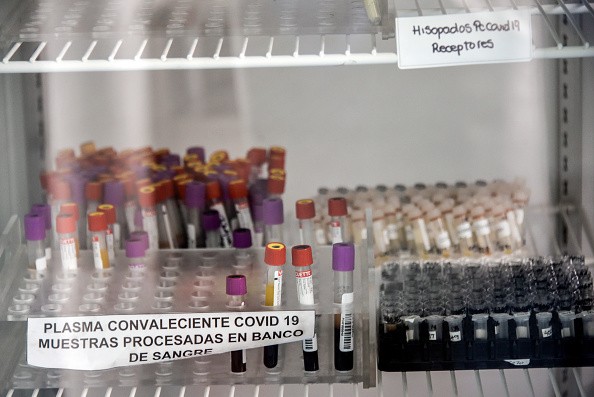Scientists Discover Antibody Highly Effective Against COVID-19
Scientists discovered an antibody that could help treat coronavirus disease.
Researchers from the University of Pittsburgh School of Medicine claimed that they managed to isolate "the smallest biological molecule" that specifically and completely neutralizes the virus that causes COVID-19.
According to Metro, the team made a drug with an antibody component called "Ab8," which is 10 times smaller than a regular antibody.
The trials for medicine had shown to treat and prevent COVID-19 in infected hamsters and mice successfully. The mice were found to be 10 times less infectious than rodents that had not been treated with the Ab8.

The drug was evaluated in conjunction with scientists from the University of Texas Medical Branch (UTMB) at Galveston, University of North Carolina (UNC) at Chapel Hill, University of British Columbia, and University of Saskatchewan.
Scientists have all noted how the Ab8 appeared to stop the virus from entering cells. It was also found that the Ab8 does not bind to human cells, which means that the drug will not have any negative side-effects in people, as per the the Daily Mail report.
Researchers said it is an encouraging sign that it does not cause any adverse side-effects in people. They said this would make the drug an excellent preventative treatment against COVID-19.
"Ab8 not only has potential as a therapy for coronavirus, but it also could be used to prevent people from contracting SARS-CoV-2 infections," said professor John Mellors, chief of the Division of Infectious Diseases at Pitt and UPMC."
Antibodies of larger size have worked against other infectious diseases. They have been well-tolerated; the drug gives us hope that it could be an effective treatment for patients with coronavirus disease and protect those who have never been infected and are not immune," he added.
The next step is finding people who will try the drug through inhalation or by injection. Researchers now need to find volunteers who will take the medicine.
Scientists noted that Ab8's tiny size not only increases its potential for diffusion in tissues to neutralize the virus better but also makes it possible to be given as an inhaled drug, unlike most monoclonal antibodies currently in development that is provided intravenously through an IV drip.
Researchers are now "thinking outside the box" when it comes to how Ab8 could be administered. Abound Bio, a newly formed UPMC-backed company, has licensed Ab8 for worldwide development.
Galveston National Laboratory and University of Texas Medical Branch Center for Biodefense and Emerging Diseases also tested the drug and concluded that it blocks the coronavirus from entering cells.
Meanwhille, co-lead authors of this research are Alexandra Schäfer, Ph.D., and David R. Martinez, Ph.D., both of the University of North Carolina at Chapel Hill; Xianglei Liu, M.D., Ph.D., of Pitt; and Swarali S. Kulkarni, M.Sc., of the University of Saskatchewan. Other authors are Zehua Sun, Ph.D., Chuan Chen, Ph.D., Liyoung Zhang, Ph.D., all of Pitt; Aleksandra Drelich, Ph.D., of the University of Texas Medical Branch; Eric Peterson, M.S., and Marcin L. Ura, Ph.D., both of Abound Bio; Sarah R. Leist, Ph.D., of the University of North Carolina at Chapel Hill; and Sagar Chittori, Ph.D., Karoline Leopold, Ph.D., Alison Berezuk, Ph.D., Dhiraj Mannar, B.Sc., Xing Zhu, Ph.D., Shanti S. Srivastava, Ph.D., and all of the University of British Columbia.
Check these out:
Vitamin D Deficiency Linked to COVID-19 Risk, New Study Finds
Subscribe to Latin Post!
Sign up for our free newsletter for the Latest coverage!
© 2026 Latin Post. All rights reserved. Do not reproduce without permission.















